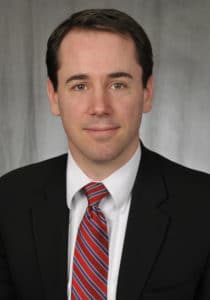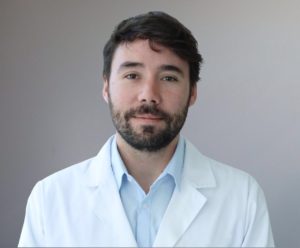Submit your grant application HERE
Applications Open: July 26, 2024
Applications Close: November 15, 2024
Purposes & Guidelines
The SAGES Research Awards are open to any principal investigator who is a current SAGES member, including Candidate Members. Please read all the guidelines carefully. SAGES would like to especially encourage grant funding to young investigators/candidate members in the hopes that funding through SAGES will lead to additional extramural funding.
SAGES considers a Young Investigator as someone who has not practiced surgery independently for more than 5 years
Awards are conferred on a competitive basis by submission of a grant application, which is assessed by the SAGES Research and Career Development Committee, in a blinded fashion, free of conflict of interest. Ultimately the recommended grantees are approved by the governing board*
Eligibility Criteria
The principal investigator must be a current SAGES member in good standing at the time of the application submission deadline. If your SAGES membership application is currently under review, please contact [email protected].
Available Research Grants
The purpose of these grants is to stimulate original research in gastrointestinal and endoscopic surgery. The study may be either “bench” research or clinical.
- Grants are limited to no more than $30,000 each, for 1-year period
- Made to the Institution
In the spirit of supporting the goals of our membership, applicants are encouraged to review: 2014 Surgical Endoscopy- SAGES Research Priorities for a recent review of key research questions. Part of the grant review process includes evaluation of the importance of the research question. The review committee will incorporate these published rankings to determine the importance of submitted topics.
PLEASE NOTE: the committee will only fund grants that involve commercially available products.
Please see the grant recipients from 1992-Present. We encourage applicants to review to avoid duplicate studies.
Grant Guidelines
It is assumed that some of the resources required to conduct the project are available through the investigator’s institution. The research grant serves to provide supplemental support for personnel (not including the salary of the principal investigator), equipment, or services required to complete the research.
The principal evaluation criteria are (1) scientific merit, (2) experimental design, (3) potential of the proposed topic, (4) qualifications of the applicant(s), (5) facilities, and (6) grantsmanship.
Awards are based on the scientific merit of the project as well as the investigator’s capability and the likelihood that the project will be completed successfully. Considerations include the investigator’s experience, background, availability of patient material and other resources. In the case of a young investigator, the experience and background of the Co-PI mentor will be considered. SAGES considers a Young Investigator as someone who has not practiced surgery independently for more than 5 years; funding for young investigators are viewed favorably and encouraged to apply for these grants.
Applicants must ensure that the team of investigators has the appropriate expertise to carry out the proposed research with high methodologic standards. For example, proposals that include cost analyses should include collaborators with expertise in economic or cost-effectiveness analysis and should use rigorous methods for costing and analysis. Comparative clinical studies must account for selection bias and expertise bias in the performance of surgical procedures; studies, where the technical skill of surgeons differs between comparison groups, are unlikely to provide valid estimates of relative treatment effects. It is the responsibility of the applicants to demonstrate how they will minimize bias in their proposals.
Requirements of Grantees
The following requirements must be met by the Investigators who receive the award:
- Investigators are required to submit semi-annual updates to the SAGES Research Committee during the course of the research, starting 6 months after the grant has been awarded.
- At the conclusion of the project, the investigator is required to submit a final update report to the Research Committee
- An abstract must be submitted for the SAGES Scientific Session, which immediately follows the successful completion of the work
- If the updates are not sent, SAGES may need to recover the monies awarded
- A manuscript on the study and your findings must be sent to Surgical Endoscopy. A copy of the final manuscript must be sent to the SAGES office in order for the grant to be considered complete. SAGES must be acknowledged as a funding source. We discourage that your work is submitted to other journals and is only eligible to be submitted if it is denied by Surgical Endoscopy.
If these terms and conditions are not met, subsequent applications from the PI and co-PI will be viewed unfavorably for future funding through the SAGES research grant program.
Since research facilities are factored into funding decisions by the Research and Career Development Committee, the primary investigator must inform the SAGES office if he or she leaves his or her institution during the course of completing this research. The SAGES Research Committee chair will work with the investigator to determine if the research funds will stay with the initial institution or move with the investigator. SAGES reserves the right to make this final decision.
SAGES Research Committee understands that studies may need modification during the execution phase. If a study design is modified, the primary investigator MUST notify the committee. The committee will then review the suggested changes and decide whether they will continue to fund the new study.
Conflict of Interest Guidelines
As part of the submission process, disclosures from all known authors must be provided at the time of submission. Because we are interested in funding a diverse pool of applications, we also ask if anyone listed in your grant has received prior funding from SAGES.
Indirect Cost Policy
- The monies SAGES awards for research grants are intended for use as seed money only and no indirect costs may be charged against these awards.
Important Guidelines & Instructions
- SAGES grants must be submitted online and you must be logged in as a member to submit a grant application.
- If the page limits and guidelines are not followed, the application will be not be reviewed.
- Appendices will not necessarily be reviewed. Add appendices at your own risk.
Please read the following document regarding how grants are evaluated: SAGES Grant Evaluation Criteria
Follow these instructions when submitting final grant application: General Research Grant File Instructions
You may use this template for your application: General Research Grant Template
The following are samples of past winning grants:
Need Advice on Grant Writing?
Past Research Grant and Award Winner Testimonials

Principal Investigator: Thomas Schnelldorfer M.D., Ph.D.
Director of Pancreatic Surgery
Lahey Hospital & Medical Center
Associate Professor of Surgery and Biomedical Engineering
Tufts University School of Medicine and School of Engineering
Year Awarded: 2013
Title: Optical Properties of Peritoneal Cancer Metastases: A Prerequisite for Image-enhanced Staging Laparoscopy
It has been an enormous privilege to have been selected a recipient of the SAGES Research Grant. The grant was provided for a study evaluating optical properties of peritoneal cancer metastases. We utilized the resulting information for prototype development of a laparoscopy system that aims at identifying peritoneal micro-metastases. The SAGES Research Grant had a direct effect on securing additional funding, including an NIH R21 grant. Therefore, I would like to thank the Society for the generous support which has helped me grow professionally and which was a tremendous boost for our research efforts.

Principal Investigator: Julian Varas Sr., M.D.
General Surgeon
Assistant Professor
Simulation Center Medical coordinator
Pontificia Universidad Católica de Chile
Year Awarded: 2017
Title: The MITO project
Applying the funds provided by SAGES for our Minimally Invasive Tele-mentoring Opportunity (MITO) project has helped us further develop the program and make important affiliations between Chilean surgical societies and teaching hospitals throughout the country. The MITO project is developed around decentralizing laparoscopic simulation training to spread training from the capital city of Santiago to more remote regions of Chile. A novel tele-simulation system for teaching advanced laparoscopy through smartphones was used to expand teaching to two large regions outside the capital in Chile. The SAGES support contributed to the approval of a second, complimentary three year $150,000 grant from the Chilean government. This grant was awarded through the The National Fund for Scientific and Technological Development (FONDECYT), the most important fund offered by the government of Chile. It will allow for the training in six different regional centers within our country with very positive early results.
By 2019, we aim to continue expanding our involvement in surgical training to other countries in Latin America. This will include collecting important data for the optimization of our teachings in laparoscopy. SAGES plays a very important role in the realization of our goals as well as future related projects.
Contact Information
For more information, email [email protected] or call (310) 437-0544, ext. 113.
The SAGES Research and Career Development Committee oversees the responsible use of the funds awarded to investigators, and the Committee takes this responsibility seriously. In the event that grantees do not provide reports that are satisfactory to the committee, SAGES may undertake one or more of the following actions as appropriate: request further detailed financial reports; send a written expression of concern to the grantee’s hospital, department or university; deny eligibility to the grantee or grantee’s institution for future funding through the SAGES Research Grant program; and/or request the return of unaccounted research funds to SAGES.